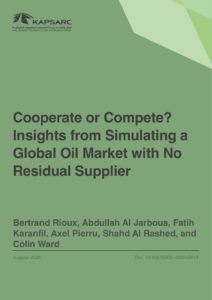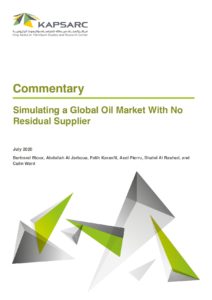Shahd was a senior research associate in the Markets and Industrial Development program. A mechanical engineer by background, she previously worked at Chevron as a flare and relief systems engineer and a facilities engineer supporting upstream and downstream Chevron facilities worldwide, with consultations and technical services based in Houston, Texas and Bakersfield, California. Shahd holds a master’s degree in mechanical engineering with a focus on advanced energy systems from UC Berkeley and a B.S. degree in mechanical engineering with a concentration in manufacturing engineering from Boston University.

Cooperate or Compete? Insights from Simulating a Global Oil Market with No Residual Supplier
Structural changes in the global oil sector are disrupting conventional market dynamics and the roles played by competing and cooperating producers. Industry players are adjusting to the shale (or ‘tight’) oil revolution and the possibility of plateauing or peaking global oil demand. In particular, OPEC and Saudi Arabia, its top producer, are reshaping the organization’s role as the primary residual supplier to the world oil market. In recent years, OPEC has invited other major exporters, including Russia, to cooperate under the OPEC+ production agreement in an effort to stabilize prices.
6th August 2020
